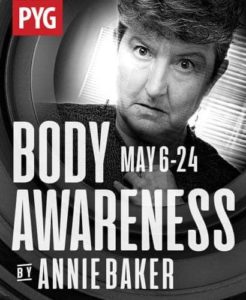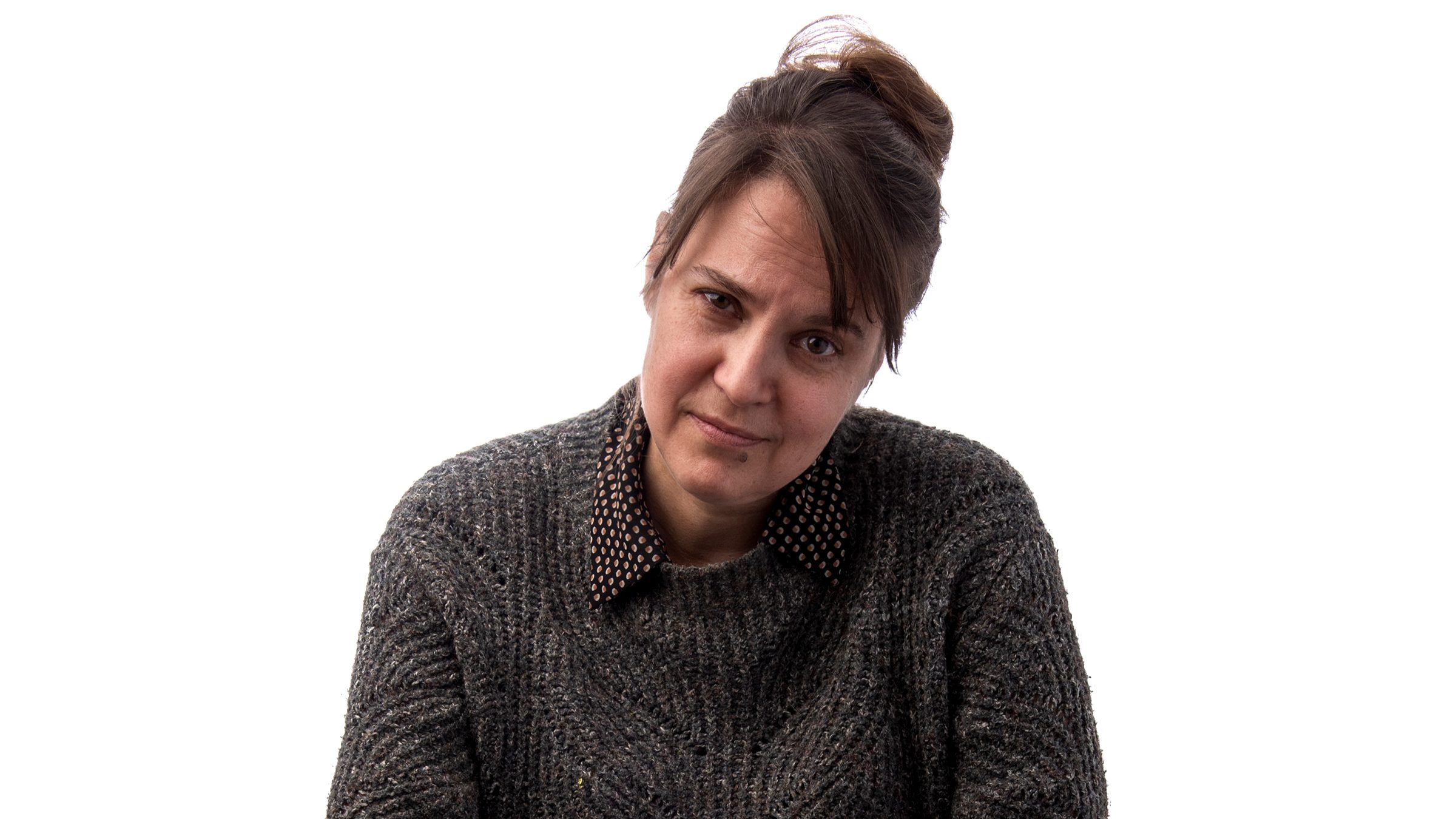SALT LAKE CITY — As great as a big boisterous musical might be, there is also something special about going to a small play that tries to tackle the issues of the day. With COVID, these more intimate experiences were perhaps the most hurt and they are just now starting to get back into production across the state. The latest is from Pygmalion Productions at the Rose Wagner Black Box Theatre May 6-21 called Body Awareness. Written by Annie Baker, the play tries, with mixed results, to dive into an array of hot topics including neurodiversity, body shaming, art, and both cis and queer relationships.

Before discussing the pros and cons of the play, it should be noted the Black Box Theatre was extremely warm on the May 6 performance. All the audience seemed to agree it was overheated, which was distracting to the overall experience. A friend even commented every time the actors drank grape juice it reminded him how thirsty and hot he was. If the team at BBT can fix the temperature, it will make for a much more pleasant viewing experience for both audience and actors.
Body Awareness begins with Brenda Hattingh Peatross’s Phyllis introducing her students (the audience) to Body Awareness Week, which is happening at the university she works at. There are a number of activities and the days of the BAW help provide a timeline for the events that take place in Phyllis and her family’s lives. It is supposed to be part of a joke that the activities actually aren’t about body awareness, but the play is not as body-forward as expected. There is basically no skin, and the only thing salacious is a discussion of photographs we don’t see and an idea of posing that doesn’t happen.

This comes to the forefront with Phyllis’ wife Joyce played by Teresa Sanderson. Unlike Phyllis, Joyce is a high school teacher rather than a professor—a fact Phyllis and her son Jared (played by Tom Roche) remind her of in a rather dismissive opening sequence. While we do see Phyllis and Joyce reluctantly spooning and cuddling, they do not seem to respect or even like each other much, and these differences are exacerbated by Jared at any chance he gets.
Speaking of Jared, Phyllis and Joyce are trying to convince him that he might have Asperger’s syndrome or at least be on the spectrum (which he clearly is). What was shocking (perhaps intentionally so?) about this storyline is how much the characters used the R-word. It seems hard to believe educated people like Phyllis and Joyce would use this word so frequently. It felt excessive and as the character was struggling with his identity, it isn’t clear what using such a hateful word, quite casually, was supposed to say.
There is no doubt the family presented in Body Awareness is a stressful one. Joyce, Phyllis, and Jared are rude, angry, and annoying, which is fine, but the script needs to be funnier or more insightful if an audience is going to spend time with such obnoxious characters. It feels especially uncomfortable when late in the play Jared threatens his moms and assaults a girl at the park. It’s such a groan to say that people on the spectrum are more violent or dangerous. The truth is that individuals on the spectrum have an increased risk of being the victim rather than the perpetrator of violence. Honestly everything about Jared, including his love of the dictionary, felt like a complete neurodivergent cliché.
Joyce is the most relatable character, and Sanderson does a great job with a vulnerable performance. However, the script doesn’t allow her to grow much and neither Phyllis or Jared respect her or treat her with any degree of kindness. There were pieces for a rewarding character arc, but the script doesn’t give such a satisfying payoff, leaving me more frustrated than inspired.
Joyce is impressed by the nude photography by Frank Bonitatibus (Tom Cowan) and considers posing. He oddly is the kindest and most sympathetic character, but he also takes photos of minors (with parental consent but still gross), so he isn’t someone easy to root for. Ambiguity in characters can be intriguing, but the journey needs to be strong enough to support the moral confusion. That’s not the case here.
As mentioned above, the body part of Body Awareness is underwhelming. It boils down to Phyllis and Joyce’s difference of opinion over Frank’s photography, and that’s it. No real issues such as self-confidence, body shaming, eating disorders, or body dysmorphia are delved into by Baker’s script. By the end, I was left wondering why I spent 90 minutes watching these miserable people and their clichéd language. It is not the fault of the actors. They did a good job. It’s just the script that needs serious work.
The set design by Allen Smith is simple yet sufficient for the story’s needs, and same with the costumes by Maddiey Howell Wilkins. The lighting by Savannah Harman works as we go seamlessly from house to Phyllis’ college without changing sets.
It may be worth supporting Body Awareness, because it is the type of theater to see more of in Salt Lake. Director Morag Shepherd is clearly trying to talk about important issues. It’s just frustrating that it does it in such an offensive manner.
Upon the play’s conclusion, one can hope Joyce leaves Phyllis, gets a boudoir shot done, and lets her spoiled annoying son figure out his life. Now that would be a play!
[box]The Pygmalion Theatre Company production of Body Awareness plays Thursdays through Saturdays at 7:30 PM and Sundays at 2 PM through May 21 in the Leona Wagner Black Box Theater in the Rose Wagner Performing Arts Center (138 West 300 South, Salt Lake City). Tickets are $15-22.50. For more information, visit pygmalionproductions.org.[/box]

